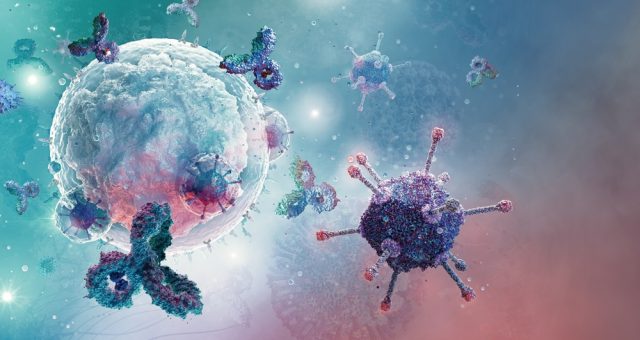Curious about antibiotics and your immunity? Learn how these drugs work, their impact on your immune system, and when to use them safely.
Introduction:
Fever. Fatigue. Sore throat. You go to the doctor. They scribble a prescription.
Antibiotics.
They’re life-savers. Literally. Since penicillin showed up in the 1940s, we’ve been using these magic bullets to knock out bacterial infections. Millions saved. Countless lives better.
But here’s the twist.
Some folks say antibiotics weaken your immune system. That they make you dependent. Lazy, even.
Sounds scary, right? Let’s break it down. The truth isn’t black-and-white.
In this article, we’re diving deep. What antibiotics are. How they work. Whether or not they really mess with your immune defenses. We’ll also chat about resistance, gut bacteria, and what happens when antibiotics are overused.
By the end? You’ll know the science. Minus the fluff.
What Are Antibiotics, Anyway?
Antibiotics are drugs. Powerful ones. They kill or stop the growth of bacteria. Period.
But wait—don’t confuse them with antivirals. Or antifungals. Those fight other bugs.
Antibiotics only work against bacteria—not viruses like flu or COVID.
There are many types. Some go after lots of bacteria (broad-spectrum). Others target specific ones (narrow-spectrum).
Think of them like snipers vs grenades.
Common Classes of Antibiotics:
- Penicillins (e.g., amoxicillin)
- Cephalosporins
- Macrolides (e.g., azithromycin)
- Fluoroquinolones
- Tetracyclines
Different weapons. Same goal: wipe out the invaders.
How Antibiotics Work (Without Boring You):
Let’s say you’ve got strep throat. Bacteria like Streptococcus pyogenes invade your throat tissue. Immune system goes to war. But sometimes? It’s not enough.
Enter antibiotics.
They either:
- Destroy the bacterial cell wall (bacteria go boom)
- Stop bacteria from multiplying (they can’t reproduce, they die off)
Immune system still works. In fact, it gets a helping hand.
But… here’s where it gets tricky.
Some people think using antibiotics means your immune system doesn’t learn to fight. That it slacks off.
Let’s explore that.
Do Antibiotics Really Weaken the Immune System?
Short answer? Not really.
But long answer? It’s complicated.
Antibiotics don’t directly damage your immune cells. They don’t kill white blood cells. Or make antibodies vanish.
So, no—they don’t weaken immunity in the classic sense.
But they can mess with your gut. And that matters.
The Gut-Immune Connection
About 70% of your immune system? Lives in your gut.
Yeah. Your intestines aren’t just for digestion. They’re a battlefield.
You’ve got trillions of bacteria down there—called the gut microbiome. Some help digest food. Others train your immune system.
Antibiotics? They kill both good and bad bacteria.
That can:
- Disrupt the gut microbiome
- Reduce immune diversity
- Increase risk of infections like Clostridioides difficile
So… it’s not that your immune system gets lazy. But it may get out of balance.
When Antibiotics Do Harm More Than Good:
Too much of anything? Bad.
Overusing antibiotics leads to problems:
- Antibiotic Resistance
Bacteria evolve. They get smarter. They learn to dodge the drug.
So next time you really need it? That antibiotic might not work.
Scary.
- Recurrent Infections
After too many rounds, your gut bacteria may not recover fully. This weakens your first line of defense.
- Immune Confusion
There’s a theory: killing too many microbes may prevent the immune system from “training” properly—especially in kids.
Less exposure = more allergies, asthma, autoimmune issues.
Not proven, but… worth thinking about.
Situations Where Antibiotics Are Essential:
Don’t panic. Antibiotics are still vital. In fact, they’re non-negotiable in some cases.
Examples?
- Bacterial pneumonia
- Strep throat (with fever)
- UTIs
- Skin infections
- Sepsis
In these cases? Waiting it out isn’t smart. You need them.
So… Should You Avoid Antibiotics?
Not at all.
But use them wisely. Only when prescribed. Only for bacterial infections.
Not for:
- Common cold
- Flu
- COVID-19 (unless there’s a secondary bacterial infection)
Follow your doctor’s directions. Finish the course. Don’t save leftovers.
And never share them.
Ways to Support Your Immune System (While Using Antibiotics):
Want to help your body heal faster and bounce back? Try this:
- Take Probiotics
They help restore good gut bacteria. Start a few hours after your antibiotic dose.
- Eat Well
Fiber, veggies, fruits. Your gut bugs love these.
- Sleep Enough
Immunity needs rest. 7–9 hours nightly. No compromises.
- Stay Hydrated
Flushes toxins. Keeps things moving.
- Don’t Panic
Your immune system’s still in charge. Antibiotics just lend a hand.
When to See a Doctor
Some signs mean you need medical help ASAP.
- Fever not going down
- Rash, hives, or swelling after starting antibiotics
- Breathing trouble
- Diarrhea lasting more than 2–3 days
Don’t self-diagnose. Don’t Google too much. Trust your doc.
Recent Studies & Findings
- A 2016 study in Cell Host & Microbe showed antibiotic use in mice disrupted gut bacteria and delayed immune recovery.
- Harvard researchers found kids who took multiple antibiotics early in life had higher risks of asthma and obesity.
Important stuff. Still ongoing. We’re learning more every day.
Case Study: Zoya’s Story
Zoya, 28. Office worker. Healthy, mostly. She caught a sinus infection last winter.
Doctor gave her antibiotics. Infection cleared. But then…
She started getting bloated. Sick often. Low energy.
Turned out her gut microbiome took a hit.
Now? She takes probiotics regularly. Eats cleaner. Fewer antibiotics. Feels much better.
Lesson? Use wisely.
FAQs: Antibiotics and Your Immune System
- Do antibiotics destroy your immune system?
No. But they may affect your gut bacteria, which help immunity. - Can I take vitamins with antibiotics?
Yes. But check with your doctor. Some might interfere. - Is it safe to take probiotics with antibiotics?
Totally. Just take them a few hours apart. - Can antibiotics cause allergies later?
Sometimes. Especially if overused early in life. - Will I get sick more often after antibiotics?
Maybe temporarily. Your gut needs time to recover. - Can antibiotics treat viral infections?
Nope. Only bacteria. - How long does it take to rebuild gut bacteria?
A few weeks to months. Depends on the person. - Should kids avoid antibiotics?
Not avoid—just use when really needed. - What’s the best diet after antibiotics?
Fiber-rich. Plant-based. Less sugar. More fermented stuff. - Can antibiotics make my immune system lazy?
Not lazy. But can throw it off balance for a while.
Final Thoughts:
Antibiotics are miracles. No doubt. But they’re not toys.
They don’t kill viruses. They don’t weaken your immune system directly. But they can disturb the harmony inside your gut—and that matters.
So be smart. Take them when needed. Avoid them when not.
Want a stronger immune system? Focus on food, sleep, and stress.
And when in doubt? Talk to your doctor.
MedicinesExplained – Because knowing what you take matters.











